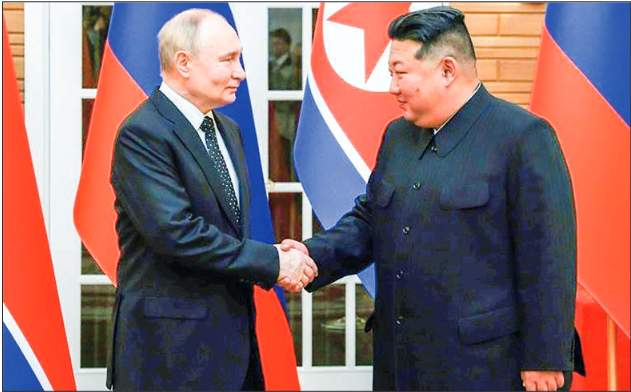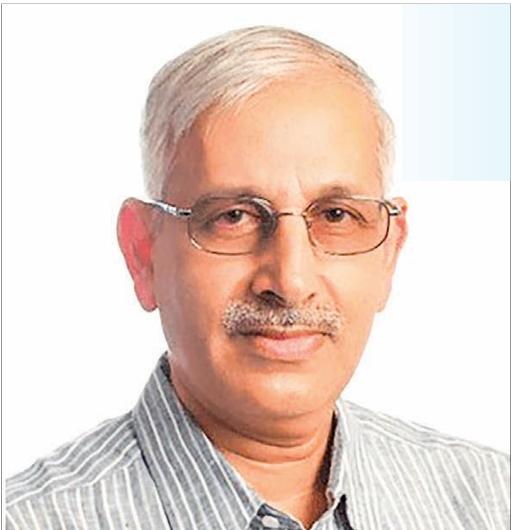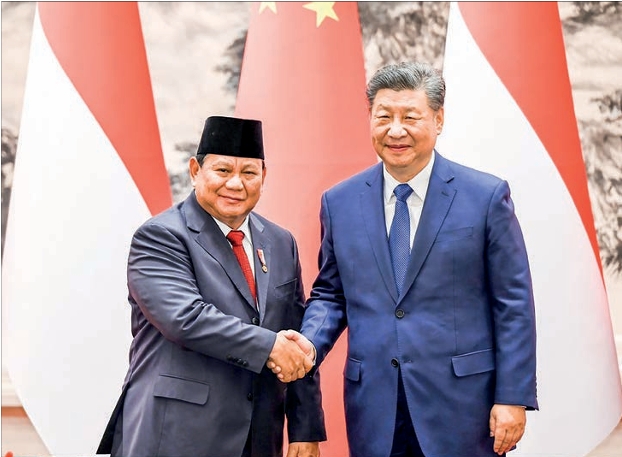The highly consequential meeting between Indian Prime Minister Narendra Modi and Chinese President Xi Jinping in Kazan on the side lines of the BRICS summit is opening exciting new opportunities. The ripple effects of this key interaction between strong leaders of the two civilizational states will naturally be felt on the bilateral terrain. Apart from promising stability along their disputed border, the benefits of the Kazan conversation go far beyond security. For instance, the dialogue between the two tall leaders has opened the door to a new phase of geo-economic engagement between New Delhi and Beijing. Chinese investments in In dia and Indian exports to China in the services sector, especially Information Technology and pharmaceutical and agri-sectors can be the new template for en gagement in the post-Kazan era. After the 2014 summit between Prime Minister Modi and President Xi in India, Beijing pledged a US$20 billion investment pack age in India. That included setting up an industrial park for manufacturing electrical equipment. If everything had gone according to plan, this equipment would have been exported to China, thus easing the adverse balance of payments, which India has chronically faced in its trade relations with China. Following Kazan, if the bilateral economic track takes off, it can encourage the two, to consider joint partnerships in third countries, especially in the Global South under the India-China+ formula. In the future, this formulation could mutate into a Russia-India-China+ idea where the three giants of the multipolar world can work together in the Global South. As the dust settles on the Modi-Xi talks — an event that took place after a gap of five years during which military tensions soared along the high mountain ranges of eastern Ladakh, it is now possible that both Beijing and New Delhi pick up the threads and explore possibilities of joint forays in Myanmar — a key nation on the cusp of South and Southeast Asia.
Why Myanmar?
There are at least four compelling reasons why India needs to reengage with Myanmar. First, Myanmar’s geography makes it a natural candidate for a deeper partnership. Myanmar is India’s gateway to Southeast Asia — indeed the pivot of New Delhi’s Act East policy. It presents a contiguous corridor for greater connectivity between Northeast India and ASEAN. Unsurprisingly, Myanmar is the fulcrum of the Asian Highway that will link India with Thailand, opening the possibility of a northern hookup with Danang in Vietnam. Trade and investments along the corridor can become a new engine for creating jobs, prosperity, and a surge in people-to-people connectivity. Second, Myanmar possesses a unique geo-strategic maritime location, along the Bay of Bengal. India has been Myanmar’s partner in building the Sittway Port. An outlet with huge potential, it is the natural gateway to channel trade from India’s northeast axis with the rest of the world, including ASEAN. On its part, China has constructed the deep-sea port in Kyaukpyu co-located with an industrial park. This port is of prime strategic importance as it lowers China’s trade dependence on the US-dominated Malacca straits, a key chokepoint that can be leveraged for the containment of China. Third, Myanmar possesses huge natural resources. These include significant deposits of precious and semiprecious stones, including rubies, sapphires, jade, and other gem stones. It also has deposits of silver, lead, zinc, gold, tin, tungsten, and barite. Besides, My anmar has substantial reserves of petroleum and natural gas, apart from huge hydropower potential, which can make it energy surplus. Myanmar can also be a major player in guaranteeing regional food security as its fertile land supports the cultivation of various crops, including rice, pulses, and other agricultural products, complementing marine resources such as fisheries. The country’s forests are also a major source of timber, fuel wood, and other forest products. Finally, as a neighbour of the two giants of the multipolar world order, Myanmar is a vital bridge between India and China, spurring the demand for a new regional initiative. Consequently, as a follow-up to the Kazan conversation between Prime Minister Modi and President Xi, a new China-India-Myanmar (CIM) economic corridor can be trilaterally considered a derivative of the BCIM plan. More so, such a standalone project can be kept out of the BRI framework, as its roots can be traced to the pre-BRI era. China has already flagged off the China-Myanmar Economic Corridor, which can be rebooted as a new project, with nodes firmly extending into India. (Atul Aneja is a strategic analyst based in New Delhi, India.)
Source: Global New Light of Myanmar




